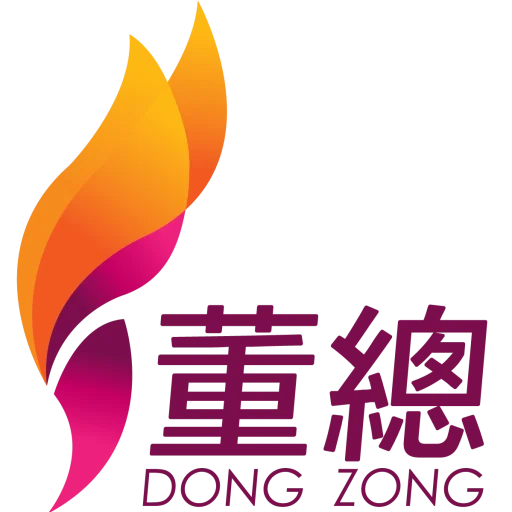Diversity Inherence Should Be Embodied in National Unity Blueprint— Espouse Cross Ethnic Interaction to Rid of Unitary Thinking
Diversity Inherence Should Be Embodied in National Unity Blueprint— Espouse Cross Ethnic Interaction to Rid of Unitary Thinking
Joint Statement Released by Dong Zong and Jiao Zong
March 8, 2021
Diversity Inherence Should Be Embodied in National Unity Blueprint—
Espouse Cross Ethnic Interaction to Rid of Unitary Thinking
The National Unity Strategy and National Unity Blueprint 2021-2030 (henceforth The National Unity Strategy and Blueprint) launched by the Prime Minister Muhyiddin Yassin on 15 February contains three aspirations and 12 strategies, as well as 41 transformation strategies. The National Unity Strategy and Blueprint details the government’s action plan to achieve goals set out in the National Unity Policy, which among others, aim to foster national integration based on the key pillars of the Federal Constitution and Rukun Negara. Dong Zong opines it agreeable as the Federal Constitution is the basis of constitutional democracy and national unity which assures people the freedom of religion and the right to learn and use their mother tongue; yet the core value of Rukun Nagara is to unite the citizens to eventually create a fair and equal society thus to narrow disparities among the people while treating the cultural tradition of other ethnic groups freely. As such, the government needs to promote national unity on pluralistic ground to ensure the execution of the said policies which is complied with the spirit of the Federal Constitution and Rukun Nagara.
It goes on page six of The National Strategy and Blueprint, ‘the definition of unity is generally to create a common and unified national identity, take for instance, one nation and her language.’ Yet due to the multiracial, multilingual, multireligious and multicultural inherence of our country, the concept of ‘unity in diversity’ is emphasised in The National Strategy and Blueprint to uphold the harmony of a pluralistic society. In fact, Dong Jiao Zong reckons it narrow minded to equate national identity with unitary culture identification as it defies the multiracial reality of the country and thus backfires national integrity and social harmony. Attributed to this, Dong Zong deems the government’s taking ‘unity in diversity’ as the direction of national unity correct only that it needs to be reflected through specific policies and executive plans and not mere exuberant verbosity on paper.
In the meantime, if the ‘nation state’ mentioned on page 27 of The National Strategy and Blueprint focuses only on a unitary thinking ‘nation state’, the multiethnic inherence of the country on matters of national integrity and harmony will be folded as this model poses injustice governance and conflicts with the ‘unity in diversity’ emphasised in the document. Our country is a multiracial structured society and thus it needs to be aligned with the concept of ‘multicultural state’ so that freedom of religions and welfare will be assured for the enjoyment of prosperity and advancement no regards of ethnic groups. In this train of thought, Dong Jiao Zong herewith urges the government to clarify its position and negotiate readily with all racial communities intensively in a bid to pool opinions and ideas for the genuine practice of ‘unity in diversity’.
It is proven diversity and unity can fare abreast not contradicting each other; the fundamental prerequisites of steady development in a multiracial nation are harmony and national integrity between the ethnic groups and this must be built on fair policies or else the foundation of nation building will be eroded. As a matter of fact, since independence, all ethnic groups have long been upholding the spirit of ‘seeking common ground while reserving differences’ for nation building. Unfortunately, the ruling government has not rendered fair treatment on the educational, economic, cultural and social domain, let alone the deliberate distortion of truth committed by a sizeable number of political parties, organisations and individuals by airing racial and religious comments of extreme; they are truly in many ways impeding national unity. Weighing on this, Dong Jiao Zong posits, for the realisation of genuine national unity, the government needs to treat all ethnic groups equally; whereas on the provocation of sensitive sentiments, like the closure proposal of multi-stream schools, the government should stand out forthwith to safeguard the system and not tight-lipped as well as letting them indulge in disputes detrimental to national development.
Diverse streams of school have coexisted and advanced in our country for over two centuries; they are the precious resource and competitive advantage of the nation which enrich the characteristic of a diverse society. The existence of these schools as a phenomenon denies the claim that multiple stream education is a hinderance to national integrity and harmony since their curriculums are attuned with the national curriculum formalised by the MOE and thus sharing common core values. To our regret, this multiple stream education system is not prominently recognised in The National Unity Strategy and Blueprint, it otherwise claims that Vision Schools help racial understanding and quicken the pace of national integrity instead (The National Unity Strategy and Blueprint: 40). Dong Jiao Zong strongly disagrees with this comment and reiterates its opposition towards the establishment of Vision Schools, understanding the eventual goal of Vision Schools is to ‘gradually realise the aim of using Bahasa Melayu as the common medium of instruction for all streams of schools’ which will subsequently terminate the use of mother tongue as medium of instruction in both vernacular Chinese and Tamil primary schools. Many research findings have indicated that the implementation of Vision Schools was unsuccessful notwithstanding these schools shared common facilities, they could not withstand the long existing firewall formed by external factors over the decades and thus could not meet the objectives of effective communication and integrity in form.
We reckon that putting schools of diverse streams under one roof stubbornly is not a strategic approach; nonetheless, the contacts and interactions between the schools need to be enforced for national integrity (The National Unity Strategy and Blueprint: 39). We understand the ultimate goal of The National Unity Strategy and Blueprint is to enhance contact and interactions between all streams of schools nationwide for better mutual understanding and national integrity. In fact, all streams of schools have been holding sports meets and cross-ethnic cultural activities under the Student Integration Plan for Unity (RIMUP) and achieved fruitful results. Moreover, for the past couple of years, independent Chinese secondary schools likewise have been enforcing interactions with private religious schools initiatively through the organisation of cross ethnic activities.
Dong Jiao Zong respects the constitutional status of Bahasa Melayu as the national language and has striven hard to promote Bahasa Melayu proficiency in both vernacular Chinese primary schools and independent Chinese secondary schools. In addition, Dong Jiao Zong also urges the ruling government to intensively interact and discuss education issues with ICSS teachers and relevant education organisations thus to bring about effective Bahasa Melayu learning approaches for non-Malay learners to command the language. Similarly, we also believe the government needs to forward concrete projects to encourage students in all streams to learn more additional languages and cultures for ethnic understanding and national unity.
We affirm Bahasa Melayu as the language of national unity as emphasised in The National Unity Strategy and Blueprint and are proactively pushing the use of Bahasa Melayu in Chinese schools, yet we expect the government to fairly treat mother tongue education of other ethnic groups and should not marginalise non-Malay mother tongue education. It is pointed out in The National Unity Strategy and Blueprint, for the goal of national unity, the understanding and appreciation of national History should be observed. Unfortunately, the History coursebooks published by the MOE do not in any way reflect the reality of multiracial, multicultural and multireligious inherence. This defect should be rectified as it will end up causing the upcoming generations to misunderstand national history and worse still, be misled. Dong Jiao Zong believes that History coursebooks should be redacted in congruence with the diverse reality of the country, including the reaffirmation of dedications shown by different ethnic groups in nation building; it is intended for the foster of mutual understanding, respect and friendly cooperation towards national integrity and unity.
Dong Jiao Zong opines, if the Perikatan Nasional government intends to promote national unity, it must accept the country’s historical gene of diversity and abandons unitary ruling model thoroughly, as well as redressing enactments which harm national integrity. Moreover, the government needs to prevent racial and religious speech and acts of extreme by law aiming to improve the political ecology of the nation for cohesion such that all people can work towards a bright future altogether with concerted efforts.

